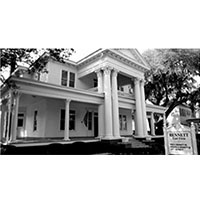Barney White Collar Crime Lawyer, Georgia
Sponsored Law Firm
-
 x
x

Click For More Info:
-
The Law Offices of Richard L. Cooper, P.A.
848 Brickell Avenue Suite 800 Miami, FL 33131» view mapDWI/DUI, Drug Trafficking, Felony Nationally Ranked Top 40 Under 40
With Richard L. Cooper you can expect a trusted confidant who will work diligently to fully understand your case and determine a road map to help you regain control of your life.
800-756-2781
Not enough matches for Barney White Collar Crime lawyer.
Below are all Barney Criminal lawyers.
Jim T. Bennett
✓ VERIFIEDJim T. Bennett has been a member of the State Bar of Georgia since 1998. Jim graduated in the top ten of his class from the Walter F. George School o... (more)
Karla L. Walker
✓ VERIFIEDKarla Walker is part of a team of progressive and aggressive attorneys in South Georgia at the law firm of Copeland, Haugabrook & Walker. Born and r... (more)
FREE CONSULTATION
CONTACT
 Richard L. Cooper Miami, FL
Richard L. Cooper Miami, FL AboutMiami Attorney at Law
AboutMiami Attorney at Law ServicesCriminal Defense
ServicesCriminal Defense


